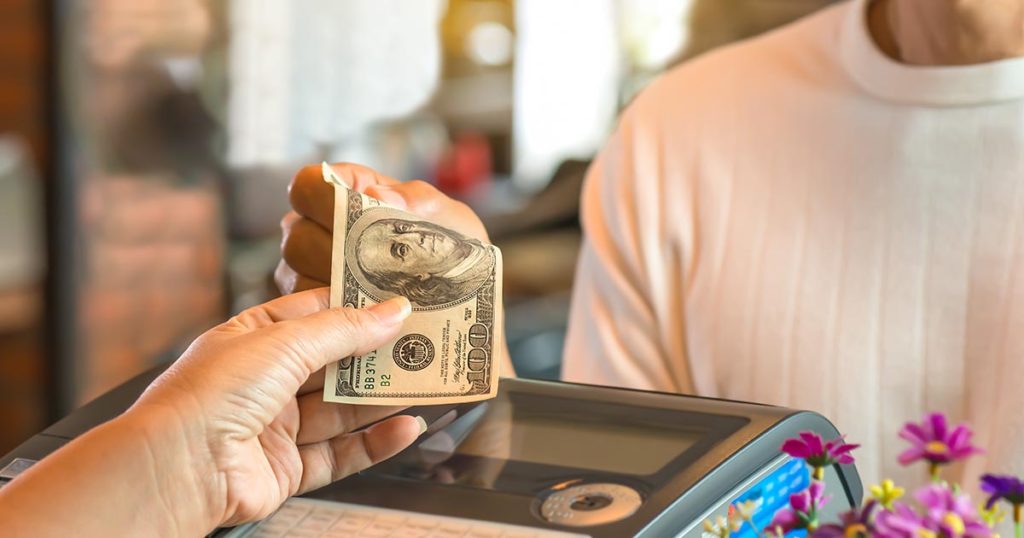How to Save for the Holidays
The Holiday Industrial Shopping Complex
Annual surveys of more than 1,000-holiday shoppers regularly show that, on average, holiday purchases add as much as $1,381 in debt to individual credit cards in the three months leading up to the arrival of the holiday.
This is a sum that most people say they can’t possibly pay down entirely in just one month, with 9 in 10 respondents telling pollsters at MagnifyMoney.com in December of 2020 that they would carry their balance and continue to make payments on their debt into the new year.
It is even more eye-opening that nearly a fifth of holiday debtors, 18%, say they will only make minimum payments on their holiday debt. A pace that amounts to a slow, grinding schedule that pays down the principal of $1,300 over five long years, plus an additional $600 in interest on a generic 14.5% APR credit card.

Why?
Just take a look around at all the concentrated energy and effort that the entire holiday shopping industry brings to the public with its heavy slate of advertising and offers of price discounts to promote a season of gift buying and gift-giving.
Three months of images showing cheerful and happy families gathered around cheaper televisions, cooler headsets, smarter phones, and better gadgets is overwhelming to any shopper’s willpower and will test the resolve of even the staunchest supporter of ‘Buy Nothing Day.’
So why does it happen? Often enough, the most straightforward reason is not that the shopper can’t afford any of the gifts, but rather that the shopper didn’t start saving for the holidays soon enough.
So with that in mind, let’s take a look at a few ways that you can start saving for the holidays earlier and still buy your loved ones a gift without incurring any debt.
How to save money all year?
The fine folks at RamseySolutions.com offer 15 quick and easy ways to save money over the long run in your quest to gather funds for the holidays. You can find the link here, but we’ve included a few of their simple suggestions for year-round consumer savings below.
- Cut your cable TV bill – the average monthly spend on TV, to include channel packages, streaming options, and a growing mountain of hidden line-item charges, now costs American households more than $200.
- Change your cell phone plan – the chances are that as much as $40 a month in savings is waiting to be discovered when you research your options and choose a mobile coverage plan that better meets your needs.
- Unplug your electronics – as much as $20 a month leaks from your wall outlets and into your various devices despite their full charge. Break the habit of leaving your phone, computer, and other devices plugged in when done charging.
- Make lunch and coffee at home – pack your work meals in a bag and save money one sandwich at a time, then wash it all down with a thermos of coffee you made at home for pennies compared to a full-sized latte costs at a specialty shop.

How to establish short-term savings for the holidays?
The temptation to put it all on the credit card and then start making monthly payments is high, but there are still plenty of ways to save more on holiday purchases, even if you only have a few weeks until December 25.
The fine folks at NerdWallet.com offer some basic guidelines for holiday shopping if your gift purchasing window falls between Black Friday and Christmas Eve. You can find the link here, and we have included a few tips below.
- Set your holiday budget – with no dedicated year-round holiday savings account, the next best strategy is to use your discretionary income (the funds available after you pay your monthly bills) to buy holiday gifts. Stay in this budget and emerge debt-free in the New Year.
- Spend smart – create a gift list that narrows your choice of recipients, then spend less on presents across the board, either with inexpensive purchases or from among the many retailer discounts on offer. Do your research, buy the right things cheaply, and you won’t be stuck paying off your debt until March.
- Pay cash – the easiest way to avoid debt is not to use it. If you can’t purchase a gift for cash, consider DIY alternatives. This may include Secret Santa gift exchanges that only require minimal spending, food items such as cookies and cakes, and gift cards, which often sell for a discount to the face value or offer extras for shoppers to redeem online.

How to save money for the holidays?
For the patient gift giver, a dedicated holiday savings account is the easiest way to save money for expected holiday purchases.
Start in January with a Empeople sub-account that you create online and then automate your savings with each paycheck.
Set aside $50 every two weeks, and in 10 months, you could have $1,000 to spend on holiday gifts with little to no effort.
Add in various savings you make in other areas, for example, your cable TV bill and your cell phone plan, and the amount of money you have to spend on holiday gifts next year could be even more.
Empeople offers self-service online account management for savings sub-accounts and plenty of options to make sure you get the one that’s right for you. You can read more about Empeople Savings Accounts here.
The Path to Financial Wellness
Finally, one sure-fire way to avoid overspending on the holidays is to change your mind about the season. Sure, it’s tempting to shower our loved ones with gifts in the most wonderful time of the year, but it can be a vicious cycle of debt and spending, with no off-ramp.
The fine folks at Forbes.com offer a more philosophical take on holiday debt, which you can read in full here. We’ve chosen to include some of their stronger suggestions below.
- Focus on January – in the new year, the emotions from the presents are gone, but the debt remains. How will you feel in January about still owing money on the gifts you gave in December? Use this emotional gauge now to determine whether you still really want to spend as much.
- Start early – Just as you save money all year long, so can you shop for holiday gifts all year long. For sure, the Black Friday deals offer a temptation too hard to ignore, but that’s no reason why you couldn’t have been making purchases year-round for everyone on your list.
- People love experiences more than things – sign your loved ones up for a class, a workshop, or a cooking lesson and pay a small price for an unforgettable experience. It’s a bit unconventional but holds the potential to create more happy memories and a closer relationship with the ones you love.




